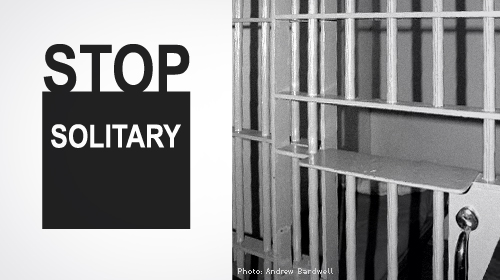In California, an End to the Absolutely Devastating Practice of Locking Kids in Isolation in Juvenile Facilities May Be In Sight


Good news for kids in California who are locked in isolation in juvenile facilities: the state could effectively end the solitary confinement of youth in juvenile facilities this year. This desperately needed development comes care of Senator – and psychologist – Leland Yee of California, who introduced Senate Bill (SB) 61 last week. If passed, SB 61 would limit the use of solitary confinement of juveniles.
SB 61 is important, not only because it grows out of a growing nationwide call to end this practice that has such devastating effects on children, but because measures like these should serve as a model for policymakers nationwide.
There’s an important backstory here. In December, the United States Attorney General’s National Task Force on Children Exposed to Violence recommended that those responsible for detaining youth, “abandon juvenile justice correctional practices that traumatize children and further reduce their opportunities to become productive members of society” – including solitary confinement. As the Task Force recognized,
“Nowhere is the damaging impact of incarceration on vulnerable children more obvious than when it involves solitary confinement.”
Thanks to Senator Yee, SB 61 is the first bill to act on this recommendation. The bill revises and improves a similar effort during last year’s legislative session, SB 1363, drafted by the Ella Baker Center and Senator Yee, but which did not become law.
The ACLU continues to support these efforts as part of its campaign to end juvenile solitary confinement.
In line with what should be a growing national trend, the provisions of SB 61 would strictly regulate the isolation of juveniles:
- The bill would ban isolation of youth as a punishment and limit isolation to circumstances in which juveniles pose an immediate and substantial risk of harm to others or the security of the facility (and only after all less-restrictive options have been exhausted); as soon as the safety risk was addressed, the youth would be released.
- The bill would mandate that youth in isolation be evaluated – face to face – by a clinician within one hour of being isolated and every four hours after that. Youth who exhibit suicidal behavior or commit acts of self-harm would be moved to an offsite hospital or mental health hospital if the suicide risk is not resolved within 24 hours.
- The bill would mandate that facilities keep and make records documenting their use of isolation and make them available to public inspection.
We simply should not tolerate the solitary confinement of kids. The impact of this practice on youth under 18 is devastating – domestic and international experts assert that young people are unable to handle isolation and that the practice should be banned.
One young man who had been subjected to solitary confinement in an adult facility in California while he was under 18 described his experience in a letter to the ACLU and Human Rights Watch:
“Being in isolation to me felt like I was on an island all alone[,] dying a slow death from the inside out.”
The practice of holding youth in solitary confinement (which the ACLU defines as physical and social isolation of 22 or more hours per day) should be banned nationwide – no matter where youth are held. All forms of isolation and segregation of youth should be strictly limited, regulated, and publicly reported. We should focus on rehabilitating young people so that they can become productive members of society – not treating them in a way that can cause them long-term damage.
Hopefully this bill will not only usher in needed change in California, but will generate momentum for a larger national trend toward eliminating solitary confinement practices that hurt kids.
Learn more juvenile detention: Sign up for breaking news alerts, follow us on Twitter, and like us on Facebook.

